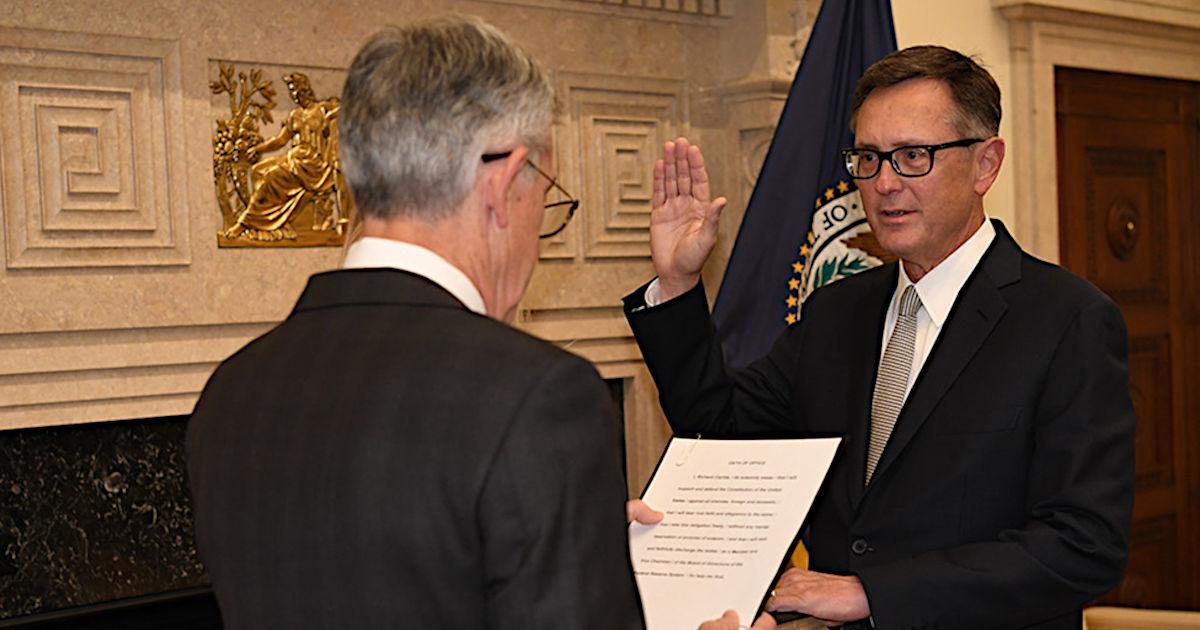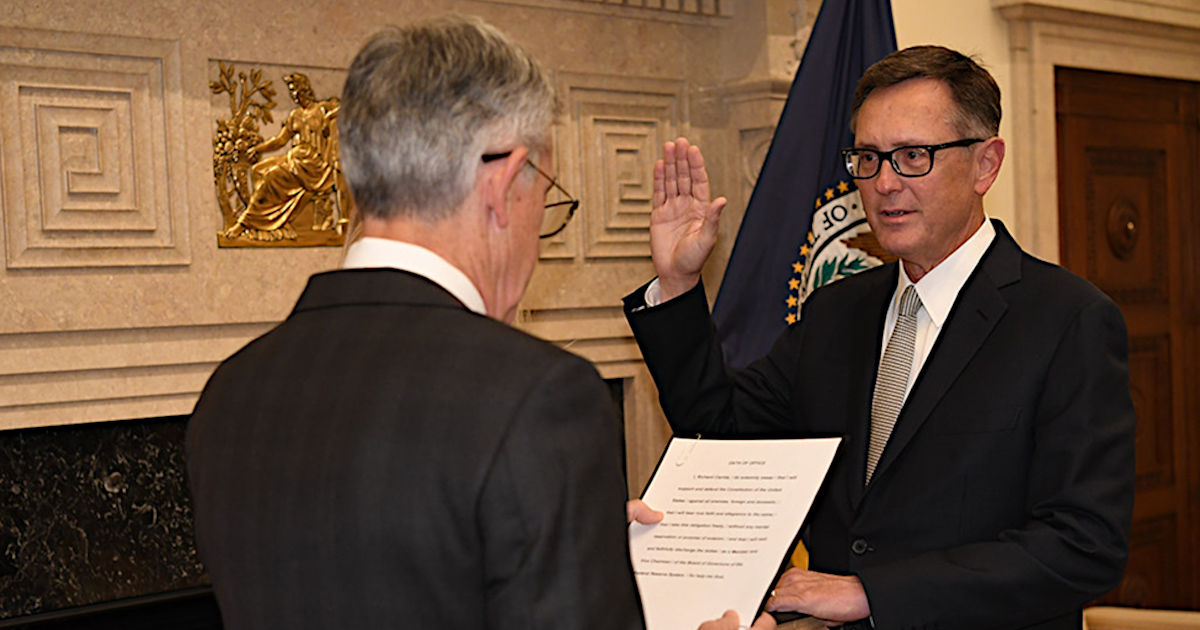Image Credit: Federal Reserve (Flickr)
Do Lawmakers and Policymakers Profit From Non-Public Insight?
Should government officials with “insider knowledge” or direct impact on corporate profits be restricted in their investing? Alan Greenspan who is still the only Federal Reserve Chairman appointed five times had his savings and investments in a blind trust account which held nothing but treasury bills maturing in a year or less. He was very open about his investing practices; he didn’t make any decisions on his account.
Fed Officials
Trading
On Monday (January 10) the second-highest ranking Fed official, Richard Clarida, resigned effective immediately. This occurred after a New York Times article the prior week discussed his active trading and remarkable timing within his investment account. The effectiveness of any central bank is undermined if trust and confidence are lost. But this is not the first time in recent years. Last fall Dallas Fed President Robert Kaplan and Boston Fed President Eric Rosengren stepped down from their positions of trust after the details of their own trading activity during 2020 surfaced. The period in question was marked by large market moves, which often occurred as a result of Fed policy changes that could provide substantial opportunity for anyone with advanced knowledge or policy-setting influence.
Congress Members Trading
An investigation by news publication Business Insider concluded that 52 members of Congress violated the Federal STOCK Act. The intention of this law is to prevent conflicts of interest and prohibit insider trading by government officials.
In an announcement yesterday (January 12), Georgia Senator Jon Ossoff indicated he plans to introduce a bill completely barring members of Congress and their immediate families from trading individual stocks. The bill will be introduced after he and his staff work to build bipartisan support for the bill.
On the House side of the Capitol, House Speaker Nancy Pelosi is on record as standing against barring individual stock trades by members of Congress. “We are a free-market economy. They should be able to participate in that,” Pelosi said in a Dec. 15 press conference. Pelosi is often under fire as her husband’s transactions include many stocks of companies that are very active spending millions lobbying Congress for laws to be passed in their favor.
Politicians that would appear onboard with a ban are Rep. Alexandria Ocasio-Cortez, and Sen. Elizabeth Warren. “There is no reason members of Congress should hold and trade individual stock when we write major policy and have access to sensitive information. There are many ways members can invest w/o creating actual or appeared conflict of interest, like thrift savings plans or index funds,” Rep. Ocasio-Cortez tweeted on Dec. 17.
Senator Ossoff has himself placed his stock portfolio in a blind trust as of June, according to a press release by Ossoff’s office.
Politicians like Rep. Alexandria Ocasio-Cortez, D-N.Y., and Sen. Elizabeth Warren, D-Mass., have expressed support for the ban.
Not The
First Effort
Legislators have introduced bills in the past to ban members of Congress from trading individual stocks.
Before the novel coronavirus market turmoil early in 2020, Rep. Abigail Spanberger, Rep. Chip Roy, reintroduced legislation in the House to require all members of Congress, as well as their spouses and children, to put investment assets into a qualified blind trust. The goal is to prevent insider trading.
The Ban Conflicted Trading Act, a bill introduced in the House last March was limited in that it only prevented trades for members of Congress and senior staffers, not their family members.
Investor
Response
There are investors that see the potential for themselves if there is trading on non-public information by government officials. The website, congresstrading.com says they look to level the playing field. They offer a service (monthly cost tied 1:1 to the monthly cost of Netflix) that allows the public to track and sort securities transactions as they are reported by law.
WallStreetBets founder Jaime Rogozinski has always been a maverick. He’s pondering the idea of creating a “copycat” or “coat tail” investor
fund. Rogozinski believes there is real potential for an investment product that tracks the bets of Nancy’s husband Paul Pelosi. It is uncertain how the fund would fair if the House Speaker were to retire.
Managing Editor, Channelchek
Suggested Reading:
 Founder of WallStreetBets has a New Idea for CopyCat Investors
|
 Paying for Infrastructure Spending
|
 Who Benefits from the America Jobs Plan?
|
 Managing Investment Portfolio Risk
|
Sources:
https://www.wsj.com/articles/SB903395355927059500
https://en.wikipedia.org/wiki/STOCK_Act
Stay up to date. Follow us:

|


